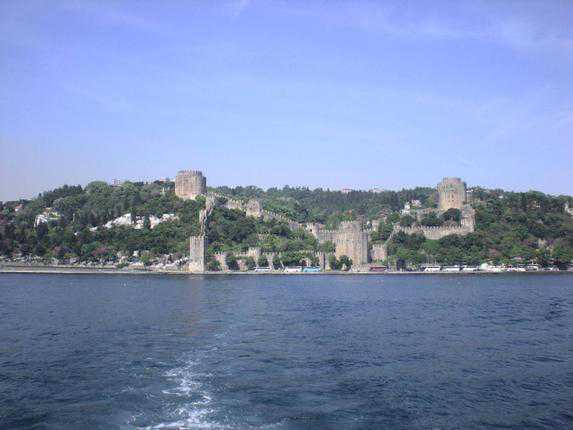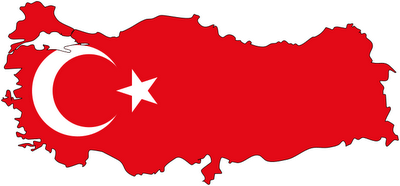Bircan Unver: Yunus Emre…
The visit to a heart is best of all…
by Emily ALP
Whether you were an avid reader of Yunus Emre or someone who vaguely knew his name, Monday night’s celebration (October 27, 2008) of his work offered attendees a deeper sense of his literary genius and social influence. More than 170 people gathered in a conference room at Columbia University’s International Affairs Building, NYC, to hear renowned professor Talat Halman discuss Yunus Emre’s life, words and socio-political significance in late 13th and early 14th centuries.
The program entitled Yunus Emre: Contemporary of Rumi was presented by the Light Millennium in collaboration with Columbia University’s Middle Eastern and Asian Languages and Cultures department and Middle East Institute, and produced by Bircan Ünver and Etem Erol.
Many people—including Swedish Ambassador, Ulf Hjertonsson and his wife Karin, as well as Turkish Consulate Mehmet Samsar and his wife Furuza—were likely drawn by Yunus Emre’s connection to famed poet Rumi. However, Halman soon explained that Rumi himself was impressed by Emre and even critiqued by him.
Professor Halman, the world’s principal scholar and translator of Emre’s work, took audience members on a contextual journey through the mystical poet’s relationship with Rumi, society and the divine. He spoke of key differences between Emre and Rumi, including Emre’s offering of poems to the simple people as opposed to just intellectuals of the time. And he went so far as to describe Emre as “beyond Rumi.”
“Emre – poet, traveling with his instrument—offered his poems to the simple people,” Halman explained.
While Rumi was a Persian poet writing works for intellectuals of the region, Emre was a mystical, nomadic presence springing from Anatolia herself—he connected readily to the villagers therein.
Emre’s messages were eloquent and easy to understand, as was evident in many of the quotes Halman pulled and wove into his engaging lecture. The feelings, imagery and suggestions took palpable form as he spoke Emre’s words. And Ismail Hakki Cimen played the ney to help channel the total feeling.
“I am the one who gave his heart to love and turned into a wild duck of passion,” Halman translated.
Yunus Emre is said to have critiqued Rumi’s words to his face, saying entire stanzas of his poetry could have been condensed into an easy-to-understand couplet. Halman also explained Rumi’s open admiration of Emre and even an admission that he, himself, strove to achieve what Emre had spiritually, but probably never would.
“Whenever I arrive at a new spiritual height, there I find footsteps of a mystic I shall never surpass,” Halman said quoting what many believe were Rumi’s words.
The audience sat at attention, enthralled and no doubt learning more than they ever knew about Yunus Emre. As a man who translated the first book of Emre’s words into English, and more thereafter, Halman proved not only to be a prominent scholar but also a man who is deeply in love with everything that Emre was and stood for. The professor was eager to share the current relevance of Emre’s message, too.
The famed saying of the 60s and 70s “make love, not war,” says Halman, was uttered by Emre almost 600 years before when he said “I’m not here on earth for strife; love is the mission of my life!”
People around the world associate Islam with violence and strife, Halman said. Yet, several times he raised the point to a captive audience that if Emre’s version of Islam were practiced and spread, the world would be a peaceful place.
This event, put on by Light Millennium—in collaboration with Columbia University—served as an appropriate reminder that it is a human impulse to shut people out using religion but a divine aspiration to include them no matter what their faith or other differences may be. Indeed, Emre believed that spiritual perfection could be found when all religions combine.
Yunus Emre stood fast against fundamentalism and rigidity as practices in the Islamic faith and in general society, according to Halman. He promoted the ideal of expansion beyond the self through love and service to others. He was indeed a mystic as well as a point of contrast for Europeans wallowing in the dark ages as well as over-zealous enforcers of the Islamic faith throughout his native land of Anatolia and beyond.
“Pharisee, make the holy pilgrimage if need be a hundred times—but if you ask me, the visit to a heart is best of all,” Halman quoted.
What people may not know is that Halman was only released from the hospital in Ankara less than a week before he flew in to New York City on Friday, October 24th. Due to his health, this celebration had been postponed, back in April. Yet he was determined to realize his commitment to spreading the word about Yunus Emre.
Toward the end of his presentation, Halman grew faint. Having stood before the audience more than an hour sharing poetry and all of his beloved drops of knowledge about Emre, the professor nearly fell down with exhaustion and was helped to take a seat. A few minutes went by as he sat with a smile. Slightly revived, he insisted on finishing the presentation with a few last couplets. His last words for the audience being:
“Let us all be friends for once. Let us make life easy for us. The earth is left to no one …”
Ismail Hakki Cimen introduced a gentle sound with the ney. His expertise in traditional Ottoman Sufi traditional music had him filling the room with otherworldly sound. With the messages and mystical life of Yunus Emre in mind, the audience enjoyed the second half of the celebration—music by Cimen and other renowned musicians.
Taoufiq Ben Amor, Arabic professor at Columbia University, percussionist and oud player, joined Cimen in providing the nights musical renditions of Emre’s poetry. The words, sung by Ahmet Erdogdular, were all an effort to capture love and devotion and oneness as well as the connection between humans and God that renders them one in the same.
Having participated in concerts as a lead singer while still a teenager, Erdogdular clearly mastered the intricate intonations and lulls required to convey the musical message amidst the words—the performance was tear jerking in perfection.
To close the night of mysticism and song, Persian composer and vocalist, Amir Vahab joined Aslihan Calisan in sharing his composition, vocals and percussion.
Finally, what would it all mean without a taste of the foods from Anatolia herself and all who have moved about her for hundreds of years? The crowd enjoyed salad, pilav, pita and hummus courtesy of Sip Sak Turkish restaurant, as well as baklava provided by Gulluoglu.
The event would not have been possible without the generous donation of time, effort, skills, and space by Columbia, NYU and Light Millennium staff and volunteers.
They’re names follow (in alphabetic order):
Volunteers:
Emily Alp, Still Photography, and Media Coverage
Gokce Alp, Videography
Josh Amata, Volunteer
Merve Arabaci, Registration, Reception
Humeyra Kocak, Host, Digital Photography
Heather Hwalet, Registration
Aysen Terzi, Reception
Sera Onalan, Registration
Asik Mehmet Ali, Reception
Media:
Selcuk Acar, Star Gazete, Turkish Journal
Ozlem Sakar, Anatolian News Agency
Yeni Ufuklar and Crew, TRT International
Razi Canikligil, Hurriyet USA
Special Thanks To:
Leyla Amzi
Astrid Benedek
Prof. Rym Bettaieb of Columbia University
Defne Nayman, MD.,
The Columbia Emergency Team
This program was a true celebration of Yunus Emre, a model of his words:
“Let us all be friends for once. Let us make life easy for us. The earth is left to no one …”
Special update for the attendees of the program and anyone concerned about Professor Halman:
Prof. Halman was taken to the emergency room based on the strong suggestions by his wife Seniha Halman, his editor Dr. Jayne Warner, Turkish Consulate Mehmet Samsar and Prof. Etem Erol, who all accompanied to him. Further, the producers of the program visited him at the hospital after the end of the program. He was feeling a lot better and even making some jokes. He was discharged from the hospital by midnight after all test results came back okay. Mrs. Halman explained on the phone to Bircan Unver on October 28, 2008 that Prof. Halman was “de-hydrated” during his flight, which was the caused of his health problem during his presentation.
Bircan Unver!s choice..






